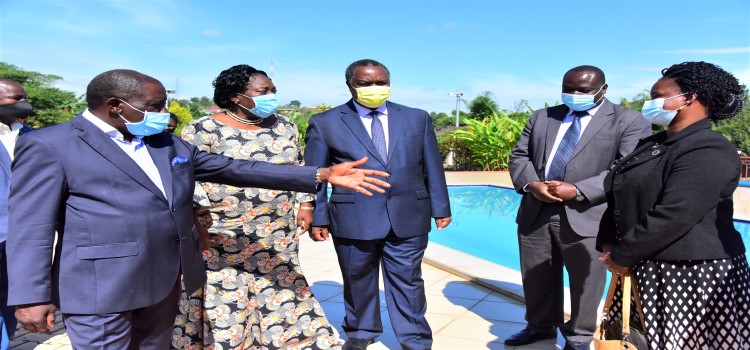
The Speaker of Parliament, Rebecca Kadaga, has pledged to hasten the signing into law of the National Biotechnology and Biosafety Bill which purposes to support the development of biotechnology in the country.
According to the Speaker, the progress of enacting the Bill into law has not been progressive, noting that Parliament has passed the Bill twice following Presidential concerns and recommendations, but it still remains pending.
Some of the President’s concerns relate to liability and benefit-sharing whereby Ugandans who have contributed to manufacturing genetic material can acquire a stake in the benefits the final product among a host of other concerns.
“We have spent a lot of time and resources on this Bill and people keep saying they do not want biotechnology in agriculture and yet the vaccines being administered to us are a result of biotechnological science,” said the Speaker.
She made the remarks while launching the Agro Genetic Technologies (AGT) Laboratory based in Namawojjolo, Mukono district, on Monday, 26 April 2021.
The Speaker, after touring facilities at the tissue culture based laboratory, said there was urgency in putting regulation of biotechnology to rest, adding that a way forward had been agreed with experts and the line ministers.
“There is also a gap between government and the private sector which needs to be bridged so as to harness the sector’s potential. We will make more efforts to ensure that the sector is empowered in this field,” said Kadaga.
The Minister for Science, Technology and Innovation, Dr Elioda Tumwesigye, said there was need for a harmonised consensus on the subject of biotechnology in the country in a bid to repatriate scientific knowledge.
“Government should be able to support research and innovation so that our scientists do not have to go to the bank to be subjected to loans acquainted with heavy interests. We have very many innovative Ugandans,” said Tumwesigye.
“We have the potential to supply the global market. AGT has millions of disease-free banana plantlets that be supplied to the country as we wait for the banana bacterial wilt disease resistant banana,” he added.
Mr Erostus W. Njuki Nsubuga, the Chairman and Executive Director of AGT Laboratories said the facility has built capacity of 10 million plants including bananas, coffee and irish potatoes, and is working with the Operation Wealth Creation (OWC) programme to reach out to farmers across the country.
He, however, cited limitations to the growth of the facility including lack of qualified personnel, lack of enough distribution network and a low capacity to provide adequate extension services for their products.
“There is also lack of a working relationship between private tissue culture companies and public research and academic institutions in terms of obtaining research products,” said Nsubuga.
He also cited the need to establish contacts with renowned tissue culture laboratory commercial companies for management and technological transfer so as to improve the quality of our genetically modified crops.
AGT that employs 200 people is the biggest tissue culture laboratory in the East African region specialising in irish potatoes.
